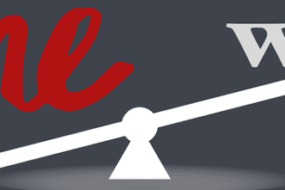What Purpose does a Resume Serve?
When writing a resume, this is the first and one of the most fundamental questions that you need to ask yourself. Failure to do so is a recipe for a poor resume. In a nutshell, a resume is a marketing tool that seeks to highlight your image in glance. The person going through it should be able to tell whether you are worth an interview or not, just from a quick look. Per se, it should summarize your abilities, skills, and accomplishments.
What Should I Included?
A resume should encompass numerous categories of information. This information include:
a. Contact Information: This entails name and address, professional email, phone number, and online presence (if any).
b. Theme: This is the subject around which you want your resume to be centered. It should focus on what you feel amplifies your strengths. For example, it may emphasize your accomplishments, educational background, or skills.
c. Objective: This should stipulate the resume’s purpose. The objective should indicate your job and career goals. It should be brief and specific.
d. Educational Background: This focuses on your academic qualifications. It should be in a chronological order or start with the most important academic certificate.
e. Employment History: This is a list of your all or significant work experiences in a chronological order. It should entail the job title, employer, and employer’s location (city and state).
f. Related Work Experience: This includes such information as internships, practicums, and volunteer work.
g. Licensure: This category entails all certificates that qualify you for specific practice. It should include dates of licensure, tests involved, and license number.
h. Awards: You should include awards that you work during your academic and career journey.
i. Membership to Professional Bodies: This should look at the various professional bodies you are registered with that are relevant to the position.
j. Hobbies: You should list hobbies and interests that highlight your suitability for the position.
k. References: The resume should include a few professional references. Conventionally, four would be enough.
What is the Most Important Element in a Resume?
A good resume should include some basic elements. These elements are in the form of content or writing style. They include:
a. Objective: The resume must have a specific objective. A clear and concise objective on your mission statement concerning the position you are seeking goes a long way in highlighting your suitability.
b. A captivating Start: The first few parts of the resume must be able to capture the interests of the person going through them, for further review. This is in consideration that numerous resumes are presented at any one point in time. To achieve this, one should explore the most important individual features relating to the position as well as the most appropriate writing style.
What Format Should I Use?
Various resume formats are suitable for different situations. These formats can be as summarized below.
a. Functional Format: This format emphasizes the strengths of the individual. It is considered suitable for people with gaps in their career paths, and those entering a new field. It as such focuses more on past accomplishments.
b. Chronological Format: In this format, items in the resume follow each other starting with the most recent. Work experience therefore appears before education. It is favorable in cases where the career path has had little or no disruptions.
c. Combinational Format: This format works well to highlight an individual’s superior skills. Individuals with distinctive skills and experiences in a specific field should opt for this format.
What is the Appropriate Length?
Generally, the thumb rule is that resumes should not exceed one page in length. This rule follows the logic that the resume should be precise and concise. Nonetheless, there is no standard length. Length should be determined by:
a. Experience: If your experience is considerably short, less than ten years in most cases, the resume should be one page or less.
b. The Position you are Seeking: Positions seeking individuals with technical skills may demand a resume of about two pages to allow you highlight the requisite skills. Equally, three page resumes could be allowed for positions that require demonstration of long leadership track records.
Are there Specific Mistakes I Should Avoid?
There are numerous mistakes that should be avoided when writing a resume. These mistakes could either be in the areas of style or content. They include:
a. A Poor Objective: It is important to note that for the resume to be relevant, the objective must match the job requirements and personal qualifications.
b. Grammatical and Spelling Errors: These usually automatically disqualify you for potential interview. They create a bad impression about you and should therefore be avoided at all costs.
c. Lack of Clear Accomplishments Made: This entails providing descriptions that do not illustrate achievements in specific areas or duties.
d. Wrong Content Amount: Resumes that appear quite congested are a put off, as are those that are scanty. You should not pack to much information or provide too little information.
e. Lack of Clear Keywords: In this, the resume must contain keywords that describe your specific attributes.









